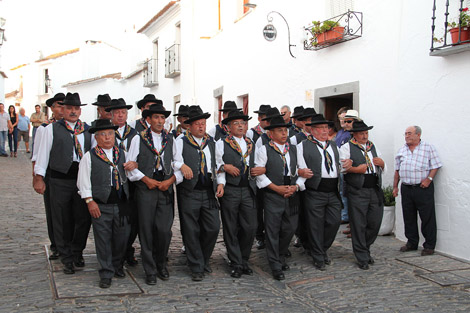 The classification of Cante Alentejano as Intangible Cultural Heritage of Humanity, decided this morning in Paris, at the meeting of the United Nations Educational, Scientific and Cultural Organization (UNESCO), is classified by Turismo do Alentejo as «a tribute to Alentejo and its people and the recognition of the greatness of an identity and singular asset of a territory that qualifies and aspires to certification, investing in what is unique and differentiating”.
The classification of Cante Alentejano as Intangible Cultural Heritage of Humanity, decided this morning in Paris, at the meeting of the United Nations Educational, Scientific and Cultural Organization (UNESCO), is classified by Turismo do Alentejo as «a tribute to Alentejo and its people and the recognition of the greatness of an identity and singular asset of a territory that qualifies and aspires to certification, investing in what is unique and differentiating”.
Winning this UNESCO seal «will allow the marketing and promotion of Destination Alentejo to be leveraged in the different tourist markets», adds that entity.
The Alentejo Regional Tourism Promotion Agency is also pleased with the classification of Cante Alentejano. In the words of ARPTA President Vítor Silva, the UNESCO seal will greatly contribute to the region's internationalization process.
Turismo do Alentejo recalls that it is preparing an Operational Plan to Support the Development and Promotion of the product “Heritage of Humanity in Alentejo” which aims to “optimize the promotion and marketing of a strategic product for a Region that now bears three UNESCO seals, namely the Historic Center of Évora, the Fortifications of Elvas and Cante Alentejano».
Within the scope of the Plan, the Regional Tourism Entity also intends to implement actions linked to the enhancement of tourist dynamics – such as through visitation programs or the publication of prestigious books -, and to requalify the built heritage.
As for Cante, next year, Casas de Cante will be founded and itineraries created around this cultural expression.
Cante Alentejano won the title of Intangible Cultural Heritage of Humanity, after the decision taken by the United Nations Educational, Scientific and Cultural Organization (UNESCO), today, 27 November.
The Cante Alentejano is a cultural manifestation of the people of this region, who saw its universal value recognized after a long process, which, led by the Regional Tourism Authority and the Serpa City Council – with the collaboration of other public and private entities of the territory – began in 2011, with the preparation of the technical and scientific works that supported the application.
Valuing and safeguarding a unique asset in the Region – one of the greatest symbols of the identity, tradition, strength and character of the people who express and preserve it – were the basic premises of the regional project that earned Cante the elevation, by UNESCO, to the category of World Heritage.

















Comments